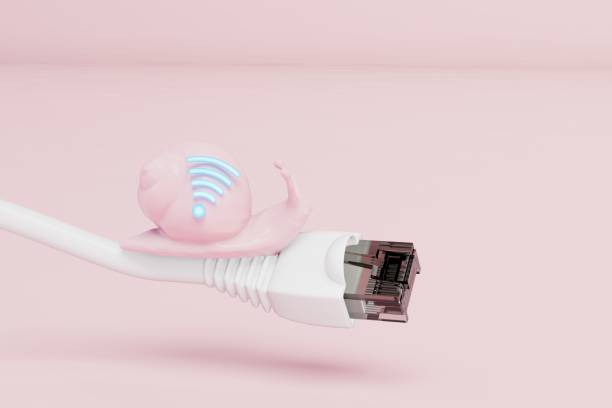Are you looking for an internet connection that can provide you with the fastest and most reliable internet speeds available? Look no further than fiber optic internet. Fiber optic internet is a modern technology that uses fiber optic cables to transmit data faster and more reliably than other types of internet connections. In this complete guide, we’ll explain the benefits of fiber optic internet in detail, from its speed and reliability to its environmental and cost-saving advantages. Keep reading to learn more!
Benefits of Fiber Optic Internet
High-Speed Connectivity: Fiber optic internet offers significantly faster speeds compared to traditional copper-based internet connections like DSL or cable.
Reliability: Fiber optic cables are less susceptible to interference from electromagnetic signals or environmental factors, resulting in more reliable connections and consistent performance.
Low Latency: With fiber optic internet, data travels at the speed of light, resulting in lower latency or lag times, making it ideal for real-time applications like online gaming and video conferencing.
Symmetrical Upload and Download Speeds: Unlike other internet technologies where upload speeds are slower than download speeds, fiber optic internet provides symmetrical upload and download speeds, facilitating smoother data transfers and content sharing.
Scalability: Fiber optic networks have high bandwidth capacity, allowing for easy scalability to accommodate increasing data demands without significant infrastructure upgrades.
Enhanced Security: Another benefit is that Fiber optic cables are more secure than traditional copper cables as they do not emit electromagnetic signals that can be intercepted, providing a higher level of data security.
Disadvantages of Fiber Optic Internet
Installation Costs: The initial setup costs for deploying fiber optic infrastructure can be high, including laying down the cables and installing necessary equipment.
Limited Availability: Fiber optic internet may not be available in all areas, especially in rural or remote locations where the infrastructure hasn’t been installed yet.
Fragility: While fiber optic cables are highly efficient, they can be fragile and prone to damage if mishandled during installation or maintenance.
Dependence on Power: Fiber optic networks rely on powered equipment to function, which means they may be affected by power outages or disruptions, impacting internet connectivity.
Compatibility: Some older devices or networking equipment may not be compatible with fiber optic internet, requiring upgrades or replacements to fully utilize the technology.
Is Fiber Internet Better Than Wi-Fi?
When comparing fiber internet and Wi-Fi, it’s important to understand that they serve different purposes. Fiber internet refers to the type of internet connection that uses fiber optic cables to transmit data, while on the other hand, Wi-Fi refers to wireless technology that allows devices to connect to the internet without the need for physical cables.
While both fiber internet and Wi-Fi have their advantages, fiber internet generally offers faster and more reliable speeds compared to Wi-Fi. This is because fiber optic cables can handle higher bandwidth and are less susceptible to signal interference, ensuring a more consistent and stable internet experience. Wi-Fi, on the contrary, is convenient for connecting devices wirelessly within a limited range.
Moreover, in terms of performance, if you want the highest speeds and reliability, fiber internet is the superior choice. However, for mobility and convenience within your home or office, Wi-Fi is essential. Many households and businesses choose to combine both fiber internet and Wi-Fi to enjoy the benefits of both technologies.

Is Fiber Internet Worth It?
Well, Fiber internet is undoubtedly worth it for those who require fast and reliable internet speeds. It offers numerous advantages over other types of internet connections, including high-speed data transmission, minimal latency, enhanced security, and future-proof technology. The benefits of fiber internet can greatly impact productivity, entertainment, and overall internet experience.
While fiber internet may have a higher upfront cost compared to alternatives, the long-term benefits and cost savings outweigh the initial investment. Fiber optic cables are durable, requiring minimal maintenance and reducing the need for frequent upgrades. Moreover, the reliability and consistent speeds of fiber internet can positively impact businesses, remote work, online gaming, video streaming, and large file transfers.
Ultimately, the decision of whether fiber internet is worth it depends on your specific needs and priorities. If you value fast, reliable, and future-proof internet connectivity, investing in fiber internet is a wise choice.
Which Is Better: Fiber or 5G?
Both fiber internet and 5G offer high-speed internet connectivity, but they differ in several aspects. Fiber internet uses physical cables to transmit data, while 5G is a wireless cellular network technology. Here are some key points to consider when comparing fiber and 5G:
Speed:
Fiber internet typically offers faster and more consistent speeds compared to 5G. Fiber optic cables can provide Gigabit speeds, while 5G speeds can vary depending on network coverage and congestion.
Latency:
Fiber internet generally has lower latency, resulting in faster response times, which is critical for real-time applications like online gaming or video conferencing. 5G can also offer low latency, but it may not match the performance of fiber in this regard.
Reliability:
Fiber internet tends to be more reliable since it relies on physical cables that are less prone to interference. 5G, being a wireless technology, can be affected by factors such as signal strength, network congestion, and obstacles in the environment.
Coverage:
Fiber internet is available in specific areas where the necessary infrastructure has been installed. On the other hand, 5G has the potential to provide coverage in a wider range of locations, including remote areas, as long as there is 5G network availability.

Use cases:
Fiber internet is ideal for stationary locations like homes, offices, and businesses that require consistent high-speed internet. 5G, on the other hand, is designed for mobile connectivity and can be accessed on the go, making it suitable for smartphones, tablets, and other mobile devices.
Ultimately, the choice between fiber and 5G depends on your specific needs and circumstances. If you require the highest speeds, low latency, and consistent performance for stationary locations, fiber internet is the better choice. However, if you prioritize mobile connectivity, flexibility, and broader network coverage, 5G may be the preferred option.
| Call 866-861-4084 for Internet Deals |
Does Fiber Optic Internet Slow Down?
Fiber optic internet typically does not slow down due to the medium’s inherent characteristics and design. Unlike traditional copper-based connections, fiber optic cables transmit data using light signals through glass or plastic fibers. This method allows for faster and more reliable data transmission over longer distances without degradation.
However, there are instances where factors outside the fiber optic network can impact internet speeds, such as:
Network Congestion:
During peak usage times or in areas with high network traffic, internet speeds may decrease temporarily due to congestion. This is not a limitation of fiber optic technology itself but rather a result of the overall network load.
Equipment Limitations:
The speed of your internet connection can also be affected by the capabilities of your modem, router, and other networking equipment. Older or lower-quality equipment may not be able to fully utilize the potential speeds offered by fiber optic internet.
Service Provider Issues:
Issues with your internet service provider’s network infrastructure or routing can also affect internet speeds. These issues may require troubleshooting or intervention from the service provider to resolve.
Physical Damage or Maintenance:
In rare cases, physical damage to fiber optic cables or maintenance work on the network infrastructure may temporarily impact internet speeds. However, service providers typically work to minimize disruptions and restore service as quickly as possible.
In general, fiber optic internet provides fast and reliable speeds. If you experience consistent slow speeds, it is recommended to contact your service provider to investigate and resolve any underlying issues.
Is Fiber Optic Internet Cheap?
The perception that fiber optic internet is cheap can be attributed to a few factors:
Efficiency in data transmission:
Fiber optic cables are highly efficient in transmitting data. They can carry a large volume of data over long distances without significant signal degradation. This efficiency allows service providers to serve a greater number of customers with higher speeds using fewer resources, ultimately reducing operational costs.
Long-term cost savings:
While the upfront cost of deploying fiber optic infrastructure may be substantial, the long-term cost savings can be significant. Fiber optic cables are durable and require minimal maintenance compared to traditional copper cables, reducing the need for frequent repairs or replacements. This leads to lower operational expenses over time, which can be passed on to consumers.
Advancements in technology:
Over the years, advancements in fiber optic technology, manufacturing processes, and deployment techniques have contributed to cost reductions. The mass production of fiber optic cables and related components has lowered manufacturing costs, making fiber optic internet more affordable for consumers.
Competition among service providers:
The increasing competition in the telecommunications industry has also played a role in driving down the cost of fiber optic internet. As more service providers offer fiber optic services, they strive to attract customers by offering competitive pricing plans. This competition benefits consumers by providing more options at affordable prices.
Government initiatives and subsidies:
In some cases, government initiatives and subsidies aimed at expanding broadband access have helped reduce the cost of fiber optic infrastructure deployment. These programs can provide financial support to service providers, making it economically viable to offer fiber optic internet services at lower prices.
It’s important to note that the cost of fiber optic internet can vary depending on factors such as location, service provider, and the specific package or plan chosen. While fiber optic internet is generally considered cost-effective in the long run, it’s recommended to compare prices and offerings from different service providers to find the best deal that suits your needs and budget.
Conclusion
Fiber optic internet offers numerous benefits, including high-speed data transmission, reliability, security, and future-proof technology. While it has advantages over Wi-Fi, the choice depends on individual requirements. Fiber optic internet has some disadvantages, such as installation complexity and limited availability in certain areas. However, it does not slow down under normal circumstances.
The perceived affordability of fiber optic internet can be attributed to its efficiency in data transmission, long-term cost savings, technological advancements, competition among service providers, and government initiatives.
As fiber optic infrastructure continues to expand, it is becoming an increasingly popular choice for those seeking fast, reliable, and affordable internet connectivity.
Frequently Asked Questions (FAQ)
Is switching to fiber worth it?
Yes, switching to fiber can offer numerous advantages such as faster and more reliable internet connections, higher bandwidth capacity, lower latency, and better scalability for future technologies.
Is there anything better than Fibre optic?
While fiber optics is currently one of the most advanced and fastest internet connection technologies available, emerging technologies like 5G wireless networks show promise in providing comparable speeds and performance.
Will 5G replace fiber?
5G wireless networks have the potential to offer high-speed internet connections, but they are unlikely to completely replace fiber optics. Fiber optics still provide superior performance and reliability, especially for large-scale deployments and areas with high bandwidth demands.
Does 5G require fiber-optic cable?
Yes, 5G networks require fiber-optic cables as the backbone infrastructure to connect cell towers and provide the necessary high-speed data transmission. Fiber optics is crucial for delivering the capacity and low latency required by 5G networks.
What is replacing fiber optics?
While no technology is currently replacing fiber optics entirely, emerging technologies like satellite internet and wireless networks, such as 5G, are offering alternative options for high-speed internet connectivity in certain scenarios.